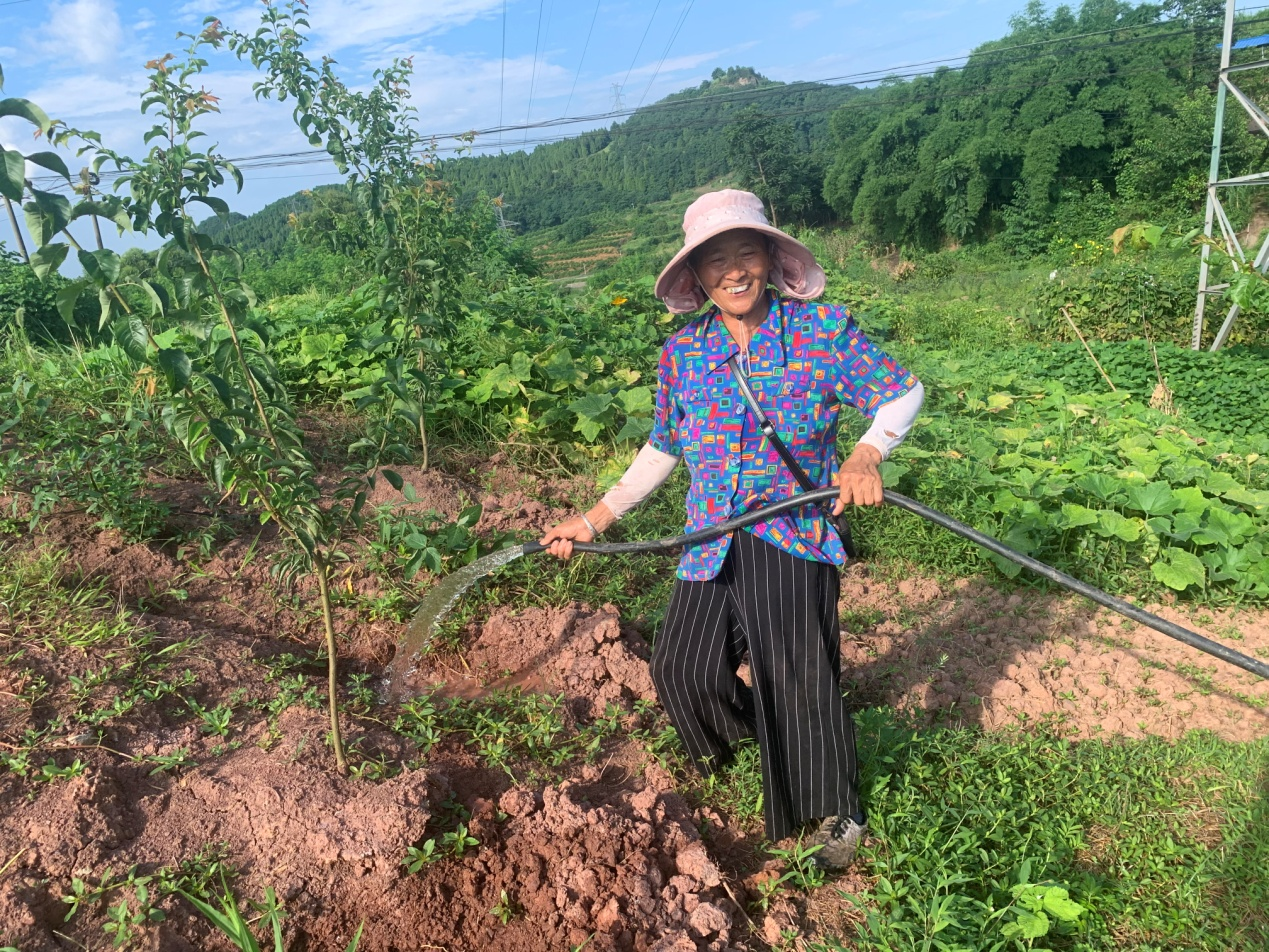The International Fund for Agricultural Development (IFAD) and China celebrate 40 years of cooperation. IFAD was the first international financing institution to lend to China, with a US$35 million loan to finance the Northern Pasture and Livestock Development Project in Inner Mongolia, Heilongjiang and Hebei.
Since then, and over the past 40 years, IFAD has accompanied China on its journey to eliminate hunger and rural poverty, and to develop rural areas. IFAD is humbled by having had the opportunity to accompany China in this historical journey, which helped the country lift around 800 million people out of extreme poverty in just four decades. No other country can claim to have improved the lives of such a large number of people in less than two generations.
Over the last four decades, IFAD has supported China’s development by providing financial resources and expertise, as well as by introducing innovations and best practices. IFAD is often referred as one of the agencies that introduced a more participatory processes to rural development in China in the 1990s. With the Rural Finance Sector Program, it contributed to the reform of rural credit cooperatives in early 2000. In partnership with the Chinese Academy of Agricultural Sciences and the World Food Program, it introduced the first weather index-based insurance product in China in 2011. And, most recently, through the latest generation of projects, it improved the models of poverty alleviation through industrial development, strengthening the capacity of cooperatives to include poor rural households and smallholder farmers into the agriculture industrialization process, bringing them out of poverty.
Many technical innovations introduced by IFAD through its projects in China have been adopted by other countries. For example, successful biogas digester technology for rural households introduced in partnership with the government in China’s Guangxi Zhuang Autonomous Region in early 2000 were later replicated in several African countries through IFAD-funded projects.
For 40 years, we have worked, in partnership with the Chinese government, in the poorest and remotest areas of the country, financing more than 30 projects worth US$3 billion – or 20 billion yuan. Our projects contributed to building new roads to connect remote villages, rehabilitating irrigation systems, and improving land management. They enhanced agriculture productivity by introducing more efficient agricultural technologies and improving the Government’s extension services. They promoted more environmentally sustainable agricultural practices and increased the resilience of farmers to climate change.

Innovative poverty reduction programme: specialized agribusiness development in Sichuan and Ningxia ( Photo courtesy of IFAD )
Our projects helped poor smallholder farmers have greater access to finance and better links to markets. They ensured that modern food value chains do not exclude poor rural farmers – and, on the contrary, that poor rural farmers can benefit from them; and have facilitated the establishment of thousands of ‘pro-poor’ public-private partnerships around the country. Overall, our partnership with China has contributed to improving the lives and livelihoods of more than 20 million men and women in poor and remote areas of China, contributing to increasing their income, assets, food security, and empowering women and other vulnerable groups.
Likewise, IFAD has greatly benefited from its partnership with China. China is not only one of the largest recipients of IFAD resources: China has progressively become one of the largest contributors to IFAD replenishments. Today, China is one of the most active members of our Executive Board; a strong supporter of IFAD’s ambitious reform agenda, and a champion of South-South Cooperation. China was instrumental in the establishment of the first Facility to support South-South and Triangular Cooperation in IFAD.
However, as we look back and celebrate 40 years of successful cooperation, we cannot miss the opportunity of reflecting on the future of our partnership. Ending absolute rural poverty is a remarkable achievement, but the path towards building a modern socialist country that is prosperous, strong, democratic, culturally advanced and harmonious by the middle of the 21st century – China’s long-term goal – is not yet accomplished. Preventing those lifted out of poverty from falling back into poverty; protecting the most vulnerable; addressing inequalities – especially between rural and urban areas; vitalizing rural areas; and ensuring green development and carbon neutrality, are some of the challenges that China will face in the coming years.
IFAD stands ready to support China in addressing these challenges, seeking rural vitalization and pursuing its long-term development goals – as well as contributing to accelerating the achievement of the Sustainable Development Goals globally – as it has supported China in its fight against food insecurity and rural poverty over the past 40 years.
The steadfast commitment from IFAD will remain. The forms and modalities of cooperation may however evolve and adapt to the changing context. In the years ahead, I foresee our partnership to ‘step-up’ and become deeper and more strategic, increasingly focusing on strategic engagement, policy dialogue, partnership building, global advocacy, knowledge sharing and south-south cooperation, and contributing to the global development agenda.
I look very much forward to the next four decades of our partnership, following the successful first 40 years of cooperation between us.
Matteo Marchisio is the Country Director and Representative of the International Fund for Agricultural Development (IFAD) in China.
Opinion articles reflect the views of their authors, not necessarily those of China.org.cn and Chinagate.cn.